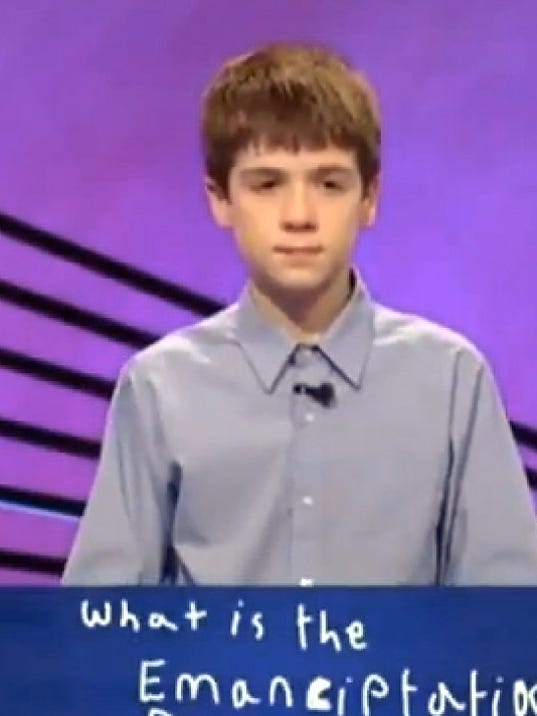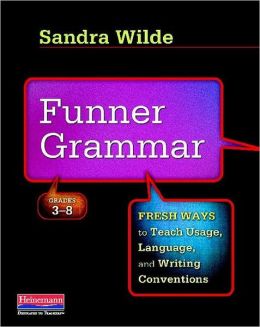Abusing center, last & next
Picture a target at an  archery range. You're about to launch an arrow toward the target. Where would you like the arrow to go?
archery range. You're about to launch an arrow toward the target. Where would you like the arrow to go?
Naturally, you want the arrow to hit that middle spot,
the center (a noun). Converting center to a verb, you want the arrow to
center .... around the intended target (the middle)? Of course not. You
want to center it IN or ON the  middle.
middle.
Nothing ever can center around anything else. Yet again, Parrot's
Disease -- blindly parroting what we see -- prevails with one of
the most frequent errors I encounter when editing stories.
Repeat after me, please: It's not remotely logical and therefore
is impossible for anything whatsoever to center around anything else. Now
that you know, you'll never make that egregious goof again, right? You
center ON, never around.
Some examples of using it correctly:
The topic centered on how to evacuate the building safely during a fire.
His speech centered on the role of the CIA in the post-9/11 world.
The team's efforts centered on the quest to make the playoffs at all costs.
So
how did the awful centers on become so prevalent? It's a
phenomenon I have dubbed Parrot's Disease, that practice of accepting
things blindly just because you've seen them often. My counsel is this:
 Be skeptical and look things up to be sure! Do not trust myths and rumors or repeat things you have seen or
heard, no matter how common. This is how such atrocious writing as the
examples cited becomes so common. Be uncommon and be sure something you write is correct. Don't just parrot what you read and hear!
Be skeptical and look things up to be sure! Do not trust myths and rumors or repeat things you have seen or
heard, no matter how common. This is how such atrocious writing as the
examples cited becomes so common. Be uncommon and be sure something you write is correct. Don't just parrot what you read and hear!
Repeat the following out loud to cleanse the evil around from your mind:
Centers on, centers on, centers on, centers on, centers on, centers on, centers on!
Next
on the list is the insidious word last, nearly ALWAYS used
incorrectly by writers and editors when referring to a previous event, day or date. In most cases, it's an empty word
that adds nothing at best and massive confusion at worst. In lots of
other cases, we truly mean past, not last.
A lot of it has to do with the jaw-dropping inability of
far too many writers/editors to grasp the concept of what is called "writing for
publication," which simply  means adapting your story to reflect WHEN it
will be published. You don't write, for example, for print publication
that the New York Yankees lost "today" in a story you are writing after
the game ends. Why? Because the story won't appear in the printed
edition until the next day, by which time the game will have taken place
the day before. When the reader picks up his newspaper from his
driveway and sits down to read it while eating breakfast, it will be the
next morning, so you would write that the Yankees lost yesterday.
means adapting your story to reflect WHEN it
will be published. You don't write, for example, for print publication
that the New York Yankees lost "today" in a story you are writing after
the game ends. Why? Because the story won't appear in the printed
edition until the next day, by which time the game will have taken place
the day before. When the reader picks up his newspaper from his
driveway and sits down to read it while eating breakfast, it will be the
next morning, so you would write that the Yankees lost yesterday.
Sounds simple enough, right? Yet reporters are forever getting
it wrong. On a recent Friday evening, I read a story about the New York
Jets. It mentioned the performance of a player during last Friday's
game against
 some opponent. WRONG! By the time the story comes out on
Saturday morning, last Friday will be the ... ready? ... last Friday
before Saturday. Meaning the day the reporter wrote the story, one day
before the story will actually appear in print. So when he or she writes
"last Friday," he's wrongly telling the reader something took place
the day before .... the last or most recent Friday.
some opponent. WRONG! By the time the story comes out on
Saturday morning, last Friday will be the ... ready? ... last Friday
before Saturday. Meaning the day the reporter wrote the story, one day
before the story will actually appear in print. So when he or she writes
"last Friday," he's wrongly telling the reader something took place
the day before .... the last or most recent Friday.
Please don't send me any nonsensical retort about everyone
"knowing what he meant." That's not nearly good enough. I could write
the dogg chazed the kat and you'd know "what I meant." That wouldn't
make such writing any less idiotic and unacceptable. Accuracy is by far
the most important goal in journalism. Nothing else matters if what you
publish is not accurate. It can be superbly written, entertaining,
informative, timely, whatever -- and won't matter one bit if what you
publish is inaccurate. Just ask a few disgraced journalists/authors who were caught lying and making up huge or  entire portions of their stories (Janet Cooke, James Frey and Jayson Blair are but three of many).
entire portions of their stories (Janet Cooke, James Frey and Jayson Blair are but three of many).
I can write the greatest article ever on Martians landing in Times Square, but who cares if what I write is not accurate?
So,
the writer mentioning last Friday's game for a story that will appear Saturday morning needs to put the date, not last Friday, to be correct. For
a story that was set for publication Saturday, Aug. 17, the writer
should have written about the player's exploits "during the Aug. 9 game"
... not "last Friday's game," which incorrectly would refer to a game
Aug. 16 (which wouldn't even have started yet, even if there was a game
scheduled that day, when the reporter filed his story for Saturday
publication).
In fact, nearly every reference to a previous event that uses
that "last ..." construction is done incorrectly. Mostly because they're
being inaccurate AGAIN and are referring to the wrong date. Even when
they are pointing to the right date, it creates needless confusion. I'll
explain why.
Example: A reporter writes in June that "a suspect was
 arrested last March." This is wrong no matter what the intent is. In the
overwhelming majority of such constructions that I have encountered as
an editor, the reporter really means the March of the previous year.
Somehow, in his/her mind, this constitutes the definition of last.
arrested last March." This is wrong no matter what the intent is. In the
overwhelming majority of such constructions that I have encountered as
an editor, the reporter really means the March of the previous year.
Somehow, in his/her mind, this constitutes the definition of last.
Um, NO IT DOESN'T. Get a dictionary and look up last.
For a story published in June 2013, "last March" refers to ...
a) March 2012
b) March 2013
If
you hesitated for even a split second, I'm sorry to have to inform you
that you need to look up the definition, too. The answer is March 2013
because it's the last (meaning most recent) March to have taken place
since the day of publication (sometime in June of 2013).
Much, much better is to simply leave out the totally confusing
word in the first place. "A suspect was arrested in March" for a story published in June makes it
painfully clear that the arrest took place two months ago. It's also
shorter, and anyone who works for a newspaper knows it's a constant
battle to fit stories into the paper, so every word is precious. Don't
waste them on superfluous (or even worse, inaccurate and/or misleading)
words.
If the writer truly meant March 2012, that is exactly how he
should write it for stories appearing in print in June 2013. It should
say "a suspect was arrested in March 2012," not "last March."
The only time last makes sense in these constructions is
when a story refers to something that took place exactly a week ago and
you want to avoid confusion by making it clear you're talking about the
previous day, not the day of publication.
Example: For a story that will be published Thursday morning,
it might be acceptable to write that the president said "last Thursday"
that the economy is improving so that readers don't think he said it the
same day they are reading the story.
Another abuse of last: when we really mean past.
In
the last six months implies an end-of-the-world  scenario such that those
are the last months, as in the final months. We mean past, not last,
here. Using last in such constructions incorrectly gives a sense of
finality to something. When you are on the FINAL page of a book, then
you can say it's the last page (exceptions would be references to your most immediate recent actions, such as the last page you read before going to bed or the last time you saw someone). When you eat the lone remaining cookie,
then it's correct to say you ate the last cookie. You see the finality,
the conclusiveness of last here?
scenario such that those
are the last months, as in the final months. We mean past, not last,
here. Using last in such constructions incorrectly gives a sense of
finality to something. When you are on the FINAL page of a book, then
you can say it's the last page (exceptions would be references to your most immediate recent actions, such as the last page you read before going to bed or the last time you saw someone). When you eat the lone remaining cookie,
then it's correct to say you ate the last cookie. You see the finality,
the conclusiveness of last here?
But when the batter stepped to the plate the previous week, they're
weren't his last at-bats unless he died, retired or was lost for at
least the rest of the season with some injury. Understand? In his past
(not last) six at-bats, Joe Schlabotnik has three doubles and a homer.
Some last constructions are OK: last night, last week, last month ...because
in this case it refers to the single most recent previous moment in question,
which is one of the correct definitions of last (see below). But it applies to singular items. It would be the past two months, the past two weeks, etc.
4last
adverb
Definition of LAST
1
: after all others : at the end <came last and left first>
2
: most lately <saw him last in Rome>
3
: in conclusion <last, let's consider the social aspect>
5last
adjective
Definition of LAST
1
a : following all the rest <he was the last one out>
b : being the only remaining <our last dollar>
2
: belonging to the final stage (as of life) <his last hours on earth>
3
a : next before the present : most recent <last week> <his last book was a failure>
b : most up-to-date : latest <it's the last thing in fashion>
4
a : lowest in rank or standing; also : worst
b : farthest from a specified quality, attitude, or likelihood <would be the last person to fall for flattery>
Many writers, for all the same reasons, don't fare any better using next, either.
I recently edited an article that mentions "next fall's Senate elections" when in fact next fall starts next month (September) and the elections in question occur in
November 2014 ... definitely not next fall.
In a story that is published on Monday, there is no reason to write that the game will take place next Wednesday. Just write that it will take place Wednesday. Why waste a word and possibly confuse readers into wrongly thinking you mean the Wednesday of the following week? It adds nothing and possibly creates confusion.
For a story published on Monday, Aug. 19, next Wednesday refers to Aug. 21. If we truly mean the Wednesday of the following week, we would need to write Aug. 28, not next Wednesday. It boggles my mind how often I've had conversations just like this with people who cannot grasp why they're incorrect.
Commit to being a lot better than that!
It's time to wrap it up. My next post will discuss a few more pet peeves not previously discussed. Stay tuned
...

 never the outrageously confusing
never the outrageously confusing  that habit of blindly copying what we see without ensuring it is correct.
that habit of blindly copying what we see without ensuring it is correct. When you make a call, you call
When you make a call, you call  archery range. You're about to launch an arrow toward the target. Where would you like the arrow to go?
archery range. You're about to launch an arrow toward the target. Where would you like the arrow to go? middle.
middle.  means adapting your story to reflect
means adapting your story to reflect  some opponent. WRONG! By the time the story comes out on
Saturday morning,
some opponent. WRONG! By the time the story comes out on
Saturday morning,  entire portions of their stories (Janet Cooke, James Frey and Jayson Blair are but three of many).
entire portions of their stories (Janet Cooke, James Frey and Jayson Blair are but three of many). arrested
arrested  scenario such that those
are the
scenario such that those
are the  The title for today's lesson comes from a column by
The title for today's lesson comes from a column by 

 "I'm all in favor of treating spelling as seriously as it should be. It
matters when a doctor writes a prescription and, apparently, when you
have to write an answer on 'Jeopardy!'
"I'm all in favor of treating spelling as seriously as it should be. It
matters when a doctor writes a prescription and, apparently, when you
have to write an answer on 'Jeopardy!'  an author of books on
grammar and spelling and the founder of a popular website,
an author of books on
grammar and spelling and the founder of a popular website,  a Hunter College education professor and the National Council of Teachers of English elementary section chairwoman. She knows: She competed on "Jeopardy!" about 15 years ago, coming in second.
a Hunter College education professor and the National Council of Teachers of English elementary section chairwoman. She knows: She competed on "Jeopardy!" about 15 years ago, coming in second. Let me qualify that by saying read books, newspapers, most magazines, even SOME of the Internet (but certainly not 90% of what people post as replies to blogs or articles and 99.999% of what anyone scrawls on Twitter). Exposure to words is the way to learn how to spell them. Without a single exception,
Let me qualify that by saying read books, newspapers, most magazines, even SOME of the Internet (but certainly not 90% of what people post as replies to blogs or articles and 99.999% of what anyone scrawls on Twitter). Exposure to words is the way to learn how to spell them. Without a single exception,  as "Chee-who-a-who-a" and not "Chee-wah-wah" and colonel as "koll-oh-nell" and not the insane pronunciation "ker-nell" and bologna as "bow-logg-nuh" and not the even more insane "buh-lone-eee."
as "Chee-who-a-who-a" and not "Chee-wah-wah" and colonel as "koll-oh-nell" and not the insane pronunciation "ker-nell" and bologna as "bow-logg-nuh" and not the even more insane "buh-lone-eee."
 a soldier in the French army who was particularly devoted and attached to Napoleon. Many expressions come from similar derivations of proper names: slave, bohemian, platonic, manila, pasteurization, quixotic, mesmerize, etc.
a soldier in the French army who was particularly devoted and attached to Napoleon. Many expressions come from similar derivations of proper names: slave, bohemian, platonic, manila, pasteurization, quixotic, mesmerize, etc.  or the works of William
or the works of William  who works at the Miami Herald. I think he is easily the best columnist in the United States as far as writing ability is concerned (I'm not talking about viewpoints or power of persuasion but merely his skill as a superb writer). James Kilpatrick
who works at the Miami Herald. I think he is easily the best columnist in the United States as far as writing ability is concerned (I'm not talking about viewpoints or power of persuasion but merely his skill as a superb writer). James Kilpatrick  died three years ago today (I didn't know that when I started this post, but it makes the post a nice tribute), but you can find some of his work on the Internet. He also wrote several books, including "The Writer's Art," based in part on his columns of the same name. It's probably at your library.
died three years ago today (I didn't know that when I started this post, but it makes the post a nice tribute), but you can find some of his work on the Internet. He also wrote several books, including "The Writer's Art," based in part on his columns of the same name. It's probably at your library. when you can't spell basic words and/or put
when you can't spell basic words and/or put